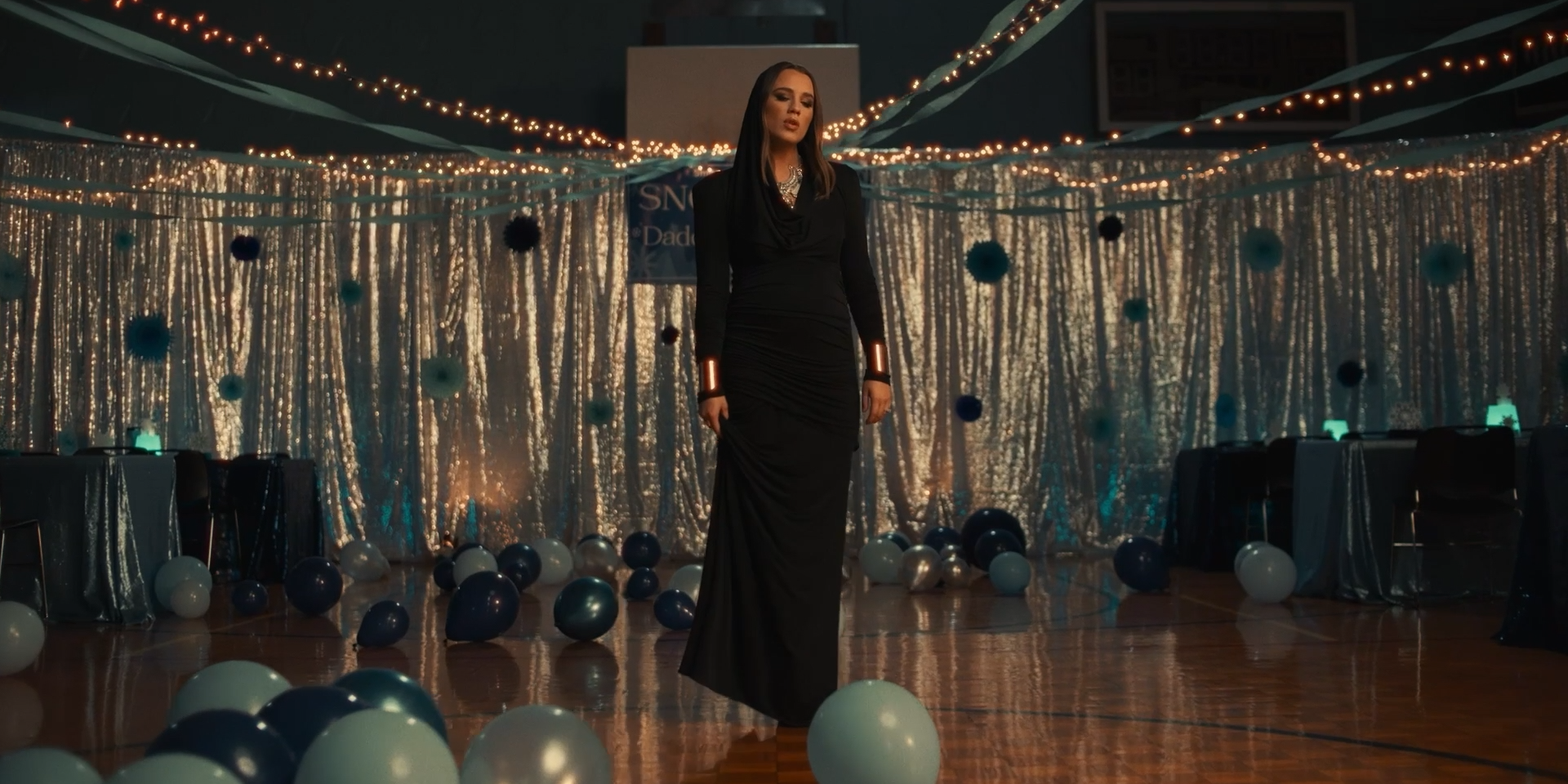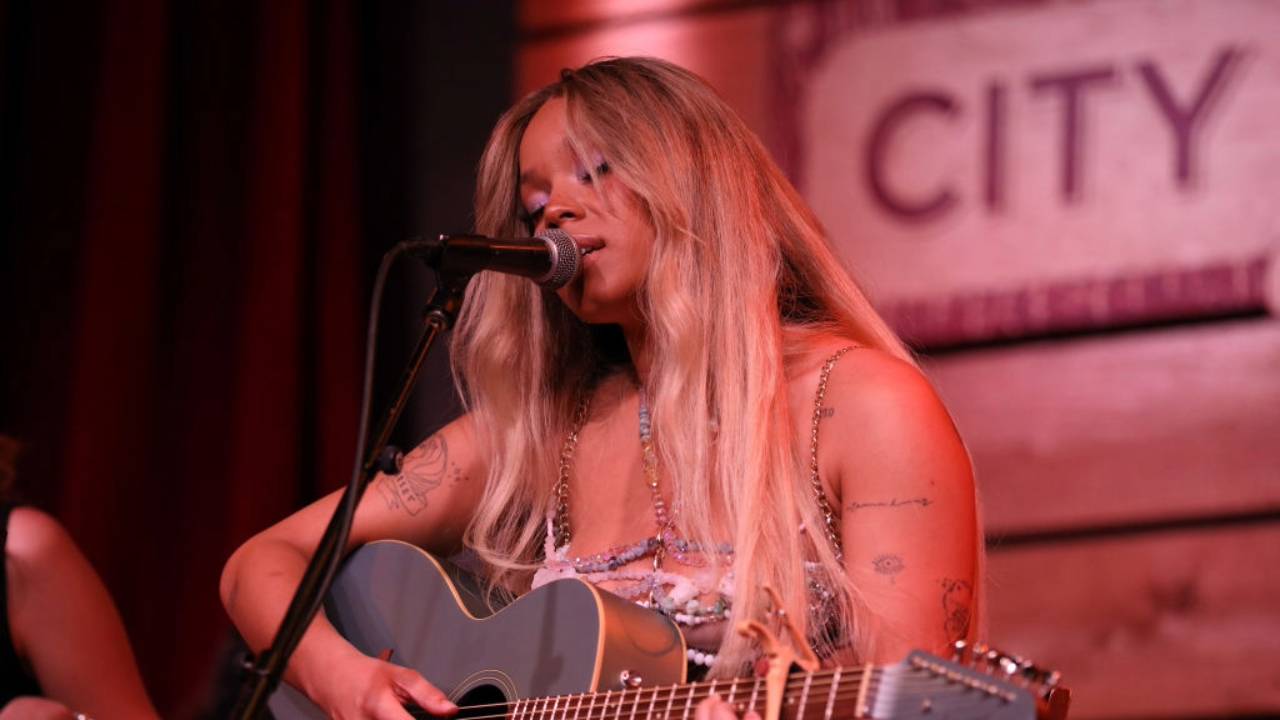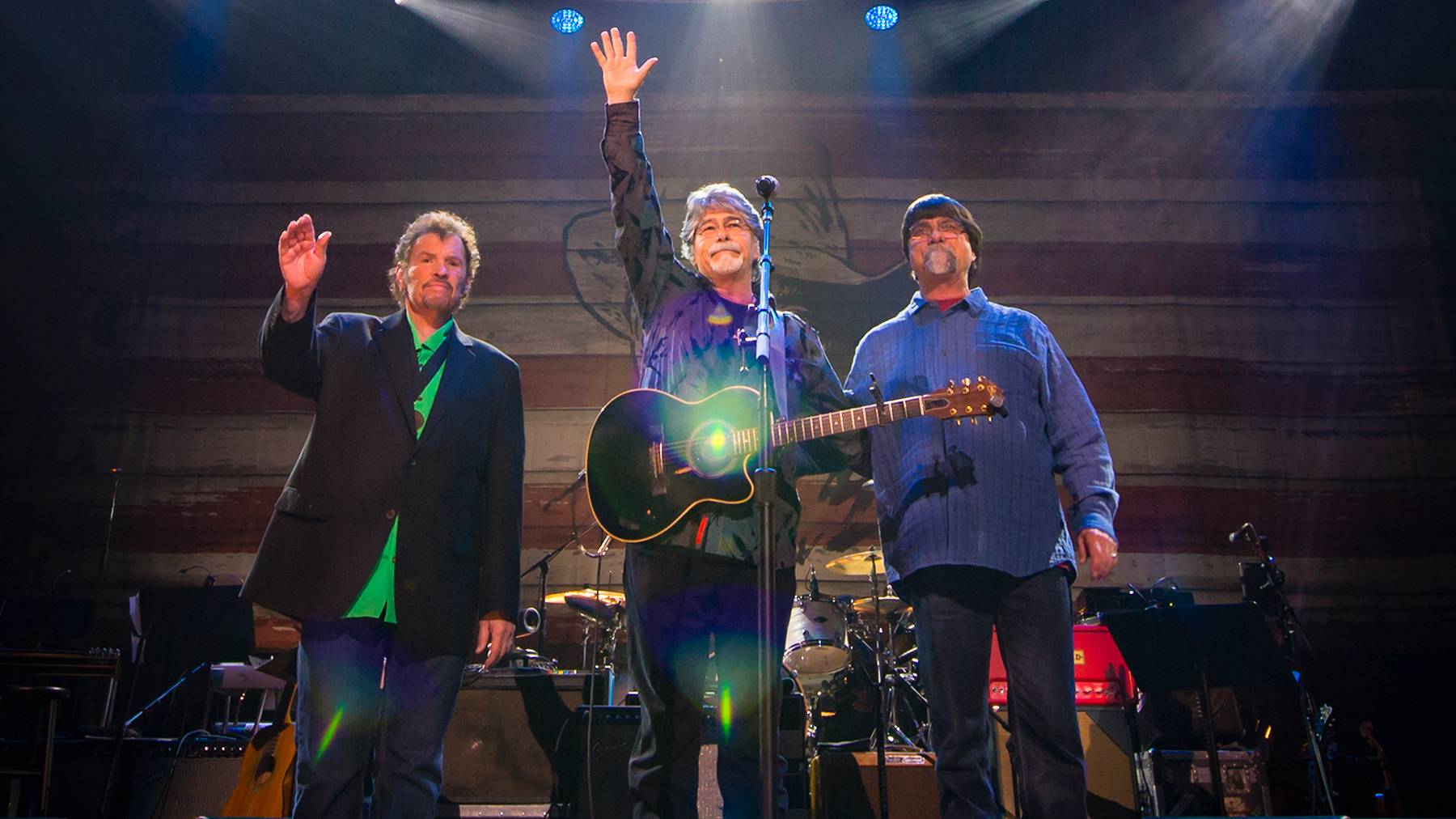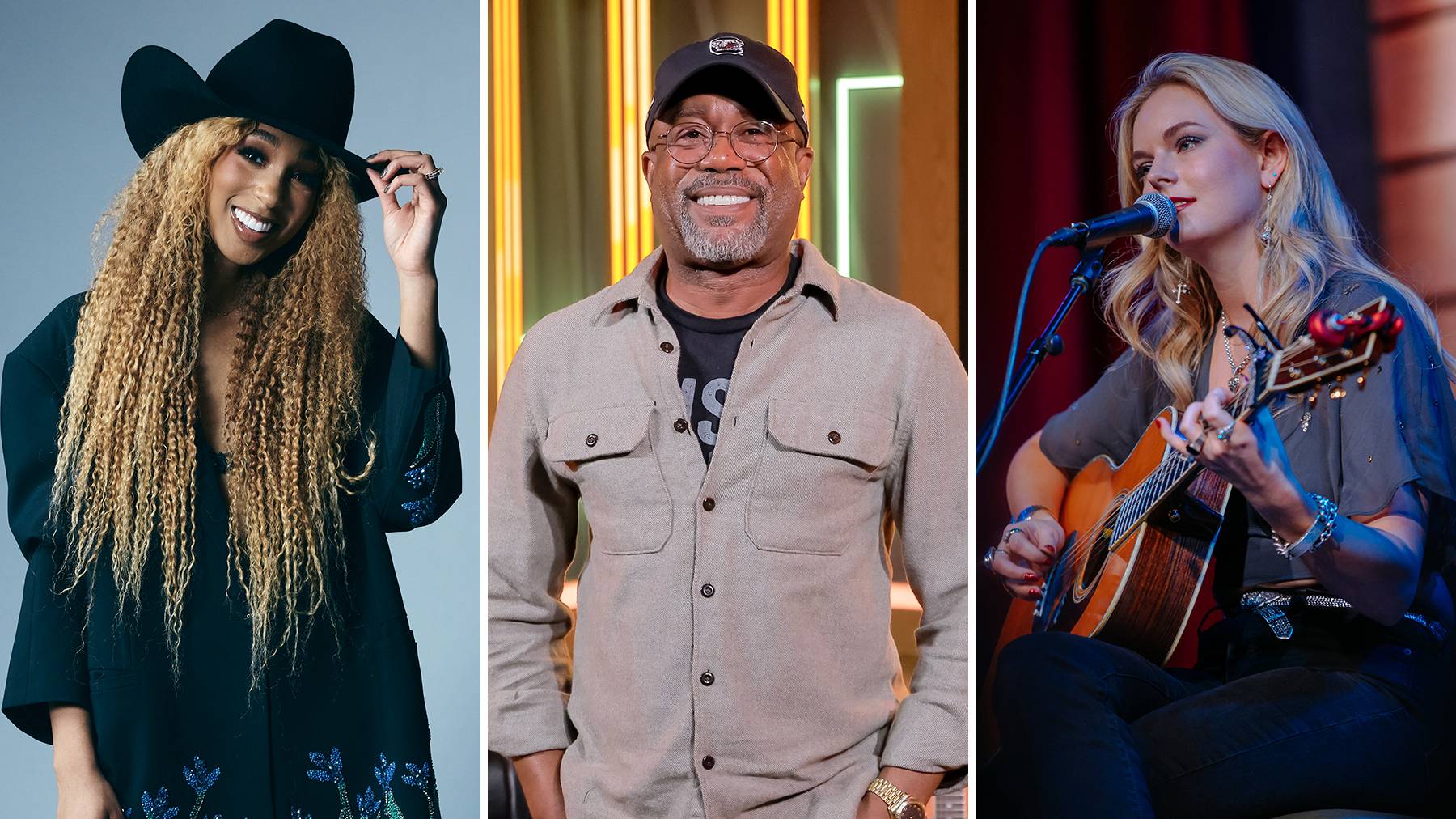Country Music Hall of Fame Member Hank Thompson Dies

Country Music Hall of Fame member Hank Thompson died late Tuesday (Nov. 6) at his home near Fort Worth, Texas, following a battle with lung cancer. The 82-year-old singer, songwriter and bandleader last week canceled all of his tour dates after being hospitalized. He played his last concert on Oct. 8 in his native Waco, Texas, when Hank Thompson Day was declared by Texas Gov. Rick Perry and Waco Mayor Virginia DuPuy.
According to Thompson's official Web site, a celebration of his life will take place Nov. 14 at Billy Bob's Texas, the famed nightspot in Fort Worth.
Few performers in any era of the music have known and appreciated its history as well, and Thompson, elected to the Country Music Hall of Fame in 1989, was a big part of that history. His warm and rich baritone graced hits from the 1940s to the 1970s, as his award-winning Brazos Valley Boys band gave those honky-tonk hits a distinctive flavor of Western swing, much in the pattern followed later by fellow Texan George Strait.
Henry William Thompson was born on Sept. 3, 1925. His parents were Jule Thomas Thompson and Zexia Ida Wells Thompson, and his paternal grandparents were German Czechs named "Kocek" who Anglicized the name to "Thompson." Though the family lived on a farm outside of town, Jule Thompson was a mechanic, and his son always had at least an amateur's interest in such handy things as radio electronics. He earned part-time money doing radio shop work in Waco during his high school days, then studied radio communications and electronics while serving in the Navy and at college extension courses (from Princeton University and the University of Texas) which helped him earn credits toward his postwar discharge.
Neither of his parents even dabbled at music, and Thompson told writer Rich Kienzle that growing up, country was the only music he listened to and the only music that anybody he knew listened to. Radio from Dallas and the Mexican border stations featured such diverse groups and artists as the Light Crust Doughboys, the Carter Family and Cowboy Slim Rhinehart. The records he actually preferred were by country's more traditional early stars -- Carson Robison, Vernon Dalhart and, of course, Jimmie Rodgers. Then movies brought him the thrill of a cowboy who sang like Jimmie Rodgers -- the great Gene Autry. Thompson got his first guitar at age 10 and began aping all these musical favorites. Peg Moreland and Ernest Tubb became radio favorites during his years at Waco High School in the early 1940s.
Known within his family as Henry William (to distinguish him from an Uncle Hank), Thompson became Hank when he began regularly winning a Saturday morning talent contest from the Waco theater, broadcast on station WACO as the Kiddies Matinee. From this, he got his own before-school 7:15 a.m. radio show on WACO as Hank the Hired Hand, singing the songs of childhood and current country favorites.
Just out of high school, Thompson enlisted in the U.S. Navy in January 1943 at age 17 (his parents had to sign for him), then he was off to Dallas for induction and later to San Diego for basic training. In the Navy, Thompson studied to be a radio operator and technician, fully expecting that to be his postwar career. Discharged in March 1946, Thompson enrolled under G.I. benefits for further electrical training at Southern Methodist University in Dallas, though when he finished that course, he went home to Waco, hoping to get his old job back on station WACO. Instead, he got the brushoff, so he signed instead with a brand new station, KWTX, which gave him a prime 12:15 p.m. daily quarter-hour show. For KWTX, Hank the Hired Hand became simply Hank Thompson, a solo singer with a guitar.
For schoolhouse dates around the Waco area, he built a band and used for their name that of a defunct area band, the Brazos Valley Boys. ("Brazos Valley Rancho" was his theme song at the time.) A local record store owner hooked him up with a new Los Angeles independent label, Globe Records, and for them he cut his first four songs at Dallas' Sellars Studio in August 1946. All were songs he had written and would later reprise for Capitol Records -- "Swing Wide Your Gate of Love," "Whoa Sailor," "What Are We Gonna Do About the Moonlight" and "California Women."
Pappy Hal Horton's late night disc jockey show on Dallas' KRLD, The Hillbilly Hit Parade, made Thompson's Globe recordings at least regional favorites, as basketsful of fan mail and requests poured in to Horton in Dallas and to Thompson at KWTX. Before long, Thompson was under Horton's career supervision. For the Dallas-based Blue Bonnet label in 1947, Thompson made four more recordings -- two from his Globe catalog and two new ones, "A Lonely Heart Knows" (later cut by his friend and booster Ernest Tubb) and "My Starry-Eyed Texas Gal."
Horton lobbied the touring movie and recording star Tex Ritter to get Thompson onto Ritter's own label, Capitol. When he came through Texas on a theater tour and guested on Thompson's radio show, Ritter and Thompson hit it off immediately. Already, an acetate demo of Thompson singing a new song, "Humpty Dumpty Heart," was big on Horton's radio show, so Capitol's Lee Gillette and Cliffie Stone flew to Waco to meet Thompson, then took him to WFAA in Dallas to cut "Humpty Dumpty Heart" on a magnetic tape recorder. (It was first time Thompson had seen such a machine.)
When the new record became a national hit, Gillette encouraged Thompson to write more love songs around nursery rhymes. They even brought him the second one, "Mary Had a Little Lamb," cut along with "The Green Light" at Thompson's first California sessions in December 1947. "Rub-a-Dub-Dub" from late 1952 was probably the biggest later hit of this type, followed by "A Fooler, a Faker" in 1953 and "Simple Simon" late the next year. Even "The Blackboard of My Heart," a big Thompson hit in 1955, used childhood school days as the background for another love-gone-wrong hit.
Before the ailing Horton passed away, he arranged country music's first broadcast nuptials when Thompson married girlfriend Dorothy Jean Ray on Horton's KRLD radio show April 14, 1948. By this time, Thompson's program was on an 18-station Texas network out of Dallas, where he and his new wife made their home. Horton next used his close connections with Eddy Arnold and the Brown Brothers in Nashville to link Thompson with Nashville's Grand Ole Opry, a move to which Thompson was not initially averse since he was still somewhat searching for musical direction and lucrative venues. He first tried a Brown Brothers radio production, Smoky Mountain Hayride, which first aired in September 1948, and then came a short-lived early morning radio show on WLAC in Nashville. With hits already to his credit, it wasn't hard to land a gig with the Opry on WSM radio, a move Ernest Tubb strongly encouraged and facilitated. However, the low pay (his first appearance paid him $9) and stifling musical conservatism led Thompson to leave in disgust about the same time another Hank -- Hank Williams -- was joining.
"Whoa Sailor" and "Soft Lips" became a double-sided Top 10 hit for Thompson in 1949, and by the fall of that year, hillbilly fans voted the young Texan as the fifth most popular hillbilly artist (after Eddy Arnold, Red Foley, Hank Williams and Jimmy Wakely).
Back in Dallas but bereft of Horton, who died in November 1948, Thompson began building his new Brazos Valley Boys with the help of Billy Gray, a guitarist and singer from Paris, Texas. Gray who joined him in 1950 and stayed for most of the following decade.
Thompson soon found that he made the bulk of his road money in dance halls, with their larger crowds and bigger gate percentages to the artists. So in 1950-1951, the Brazos Valley Boys (for the first time) became a Western swing unit, built to play this Southwestern and Western circuit. Oddly enough, Dallas audiences were not as receptive to the new sound as he had hoped, but he found a warm welcome and a new career base in Oklahoma City's Trianon Ballroom, where a young college grad from Kansas named Jim Halsey came down to manage him (Halsey would later manage Roy Clark, the Oak Ridge Boys and others.) At the Trianon and on Oklahoma City's WKY-TV (1954-1957), Thompson and Gray honed their brand of Western swing -- less jazzy than Bob Wills (who had just left Oklahoma for Dallas and later California), less orchestral than Spade Cooley and different and distinctive from popular Oklahoma bandleaders Leon McAuliffe and Merl Lindsay. Still, he had to move beyond the raw honky-tonk of a Hank Williams or Lefty Frizzell -- and even the spare sound of Thompson's own earliest recordings -- if he was to keep the dance hall circuit happy. He found the sound he wanted with the help of Gray's arrangements and a procession of great musicians.
Thompson never thought of himself as a bandleader in the sense of Lawrence Welk or Bob Wills sense. Instead, he was a featured singer with his band, and he loved to meet and greet fans at dances while the band kept playing (a habit that infuriated a lot of Texas club owners, used to the non-stop, no frills Bob Wills approach). And he was right, since the multi-award-winning Brazos Valley Boys really did develop an identity and song repertory of its own. Capitol cut numerous instrumentals and often marketed the recordings separately.
Singer Billy Walker, a young Dallas and KRLD hopeful, opened Thompson's road shows for a while and even made his first Capitol Records on tape in Thompson's Dallas living room early in 1950. Walker would not be the last major artist boosted by Thompson, who'd been helped himself by Tex Ritter. Thompson was instrumental in the careers of two early female stars -- Jean Shepard and Wanda Jackson.
In 1951, Thompson's wife brought to his attention a Jimmy Heap recording to the tune of "Great Speckled Bird." Titled "The Wild Side of Life," Thompson cut it at his first Capitol session with producer Ken Nelson in Dallas in late 1951. It became a smash hit, though Thompson himself was never that impressed with the song. Kitty Wells' answer hit, "It Wasn't God Who Made Honky Tonk Angels," even gave Thompson's hit a second life. And since Thompson's big hit on "The Wild Side of Life" had spawned an answer song, he tried an answer song himself (with great success) with 1953's "Wake Up Irene," the response to Leadbelly's "Good Night Irene" (a country hit for Red Foley and Ernest Tubb), featuring Merle Travis on lead guitar. Thereafter, Travis's guitar work is evident on most Thompson sessions, and Travis helped Thompson and Gray with suggestions for musical arrangements as well. Travis eventually married Thompson's divorced first wife, Dorothy, in the 1970s, but all parties remained on friendly terms, Thompson calling himself and Travis "husbands-in-law" in stage banter thereafter. Thompson meantime was happily married to second wife Ann from about 1970 until his death. He had no children by either marriage.
If Thompson's 79 charted hits had a dominant theme, it would be what writer Rich Kienzle called Thompson's "rollicking, beery honky-tonk norm," and this if anything is even more evident in his 1960s hits, such as "A Six Pack to Go," "Hangover Tavern," "On Tap, In the Can, or In The Bottle," and "Smoky the Bar." A prolific album artist throughout his Capitol years, Thompson cut several groundbreaking concept albums in the 1950s, and he pioneered the live country music concert album with Live at the Golden Nugget from Las Vegas (1961), then followed this up with other "on location" albums -- from the Cheyenne Frontier Days Rodeo (July 1962) and back in his home country at the State Fair of Texas (October 1962), where Thompson and his Brazos Valley Boys were regularly featured each fall for years.
A true groundbreaker, Thompson was one of the first to transport his band in a bus, though he himself normally flew his own private plane. Along with Leon McAuliffe, he was one of the first in country music to do so.
Thompson cut his last sides for Capitol in 1964, then moved on to moderately successful affiliations with Warner Brothers (1965-1966) and Dot/MCA (1967-1979), where, minus the Brazos Valley Boys and dependent upon studio pickers, the emphasis shifted away from Western swing and toward the reigning Nashville Sound. In the early 1980s, Thompson resurfaced on manager Jim Halsey's label out of Tulsa, Churchill Records. About this time, Thompson moved back to Texas (first Waco, then the Dallas-Fort Worth area), and for years after Jim Halsey's retirement handled his own more limited bookings through Thompson Enterprises. He even returned to the recording studios for Curb in the early 1990s and was honored by one of the better multi-artist tribute albums, Hank Thompson & Friends (1997) for that label.
Germany's Bear Family Records in 1996 reissued Thompson's complete early catalog (1946-1964) -- all of the Globe, Blue Bonnet and Capitol cuts (including a few never previously issued) - as Hank Thompson and His Brazos Valley Boys. In August 2007, Capitol Records released 18 of Thompson's classic albums as digital downloads.
Having performed on seven continents, Thompson continued to record and tour into the 21st century, earning him the distinction of a seven-decade career. Thompson recently completed work on his autobiography, My Side of Life, with writer Warren Kice. According to Thompson's Web site, the book is scheduled to be released in November 2007.





